
With the aim to create awareness among UTARians on the importance of
psychological well-being and physical health especially in this pandemic
era, the Counselling Wellness Week 2021 (CWW) staged another comeback this
year with the theme ‘Believe’. It was organised by
UTAR
Department of Student Affairs of
Sungai Long Campus’ Counselling and Guidance Unit (CGU). The campaign
saw various talks and activities hosted for its staff and students and the
public via Microsoft Teams, ZOOM, Facebook Live and game applications.
The theme ‘Believe’ was set to encourage people to believe in their own
strength and capability to improve and motivate themselves in their daily
lives. The act of believing leads to a better and self-fulfilled life.
The event also aimed to provide a platform for participants to learn to
believe and love themselves which will help them to achieve their life goals
and boost their personal motivation. On top of that, it also aimed to
promote and extend counselling services provided by CGU.

It’s Zumba
A fun and interesting exercise titled “Let’s Zumba, Let’s Have Fun” was
organised on 25 May 2021 via ZOOM to kick start the first day of the event.
It was moderated by CWW 2021
committee member Thulasini Balachandran. Invited to be the instructor was
full-time Fitness and Wellness Coach Haslinda Basir.

Haslinda
“In order to lose weight healthily, we must eat and never skip our meals. We
must consume carbs, protein and fibre. Do not forget to drink plenty of
water every day. Most importantly, do not push yourself too hard during the
loose weight journey,” encouraged Haslinda.




Let’s Zumba with Haslinda

Participants “Zumba-ing” with Haslinda
(Courtesy photo from CWW committee members)

Haslinda (top row, most left) and Thulasini (top row, second from right)
with participants
(Courtesy photo from CWW committee members)

“EQ Workshop” speaker Navamani provided tips to enhance our emotional
intelligence
Another activity titled “EQ Workshop” was organised on 25 May 2021. Invited
to be the speaker was CGU Senior Assistant Manager-cum-Counsellor Navamani
Nagappon. The activity was organised to provide tips to enhance emotional
intelligence (EQ).

Navamani interacting with participants
“Emotional Excellence (EE) plays a very important role in our interactions.
It portrays how we respond to criticisms, how we deal with diversity, how
tolerant we are with certain behaviours or situations and how we motivate
ourselves and others. An individual with high EQ demonstrates the ability to
pursue goals with vision, determination and energy,” said Navamani. She also
explained the definition of perception, the differences between EQ and IQ
(Intelligence Quotient) and the basic components of an EQ.

A quick self-test with LPI
In the workshop, some fun and interesting activities such as “LEONARD
Personality Inventory (LPI)” and “Imagine and draw” were carried out during
the two-hour session. LPI is a quick self-test that enables a person to
better understand their personality and how they can improve and optimise
themselves. It also enables a person to understand how they can work
together with different types of personality people and how they can manage
themselves, other people and the environment.
Imagine and draw was an activity that required participants to listen and
draw based on the instruction received to see if they can draw what was
given. This activity illustrated the meaning of perception and leadership
(how we work together with people).

Listen and draw based on instructions given (circled in red)

Tips to achieve long-term endorphins
Navamani concluded her workshop by sharing the importance of Endorphins and
the principles of life. The workshop then ended with a group photo session.

Navamani (top row, most left) and participants
(Courtesy photo from CWW committee members)

Unscramble with “Words Scramble” session
A virtual game session titled “Words Scramble” was organised on 26 May 2021.
It was moderated by its committee member Tabitha Joanna George Cyril
Crimson.

Participants unscrambling the words in the chatbox (circled in red)
During the game session, participants were required to unscramble 30 words
based on the theme and description given within a limited time.

Texts (circled in red) were given to test out participants’ typing speed
Another game session was held right after the words scramble session called
“TypeRacer”. It was moderated by its
committee member Ho Ai Ning. TypeRacer was an online game that allowed
participants to compete with each other using their typing speed.

Relax with “E-Chess”
On 27 May 2021, a game session titled “E-Chess” was organised. It was
moderated by its committee member Loi Woon Wei. In order to proceed with the
game session, participants were required to download an application, namely
“Chess-Play and Learn” from Google Play Store or Apple App Store.
The application allowed players to play chess with either their
friends or people from around the world.

A tutorial video showing how to play e-chess via “Chess-Play and Learn”

Steps to play with opponents

“How to Deal with Difficult People”
On 29 May 2021, an online workshop titled “How to Deal With Difficult
People” was organised via ZOOM and Facebook Live. It was moderated by its
committee member Er Ji Siang. Invited to be the trainer was Michael Ng Zi
Kent, a Certified (DISC) Behavioural Consultant and Certified PSMB-MIM
Trainer. He is also an entrepreneur and UTAR alumnus.

Michael Ng
During the workshop, he explained the different types of people he met when
he was part of the Student Representative Council and his past working
experience after graduation. He also shared how he met his life mentor and
how he began his career as an entrepreneur.
“Actually there are no ‘Difficult’ people, just ‘Different’ people. When it
comes to working, we do not always have a choice who we want to work with,”
said Michael Ng.
He continued, “To deal with people, we must first understand ourselves by knowing our behavioural styles, namely Dominance and Emotions.” He then explained the differences between being dominant and non-dominant as well as expressive and non-expressive. He also shared the four different types of behaviours, namely Dominance, Influencing, Steadiness and Compliance (DISC).


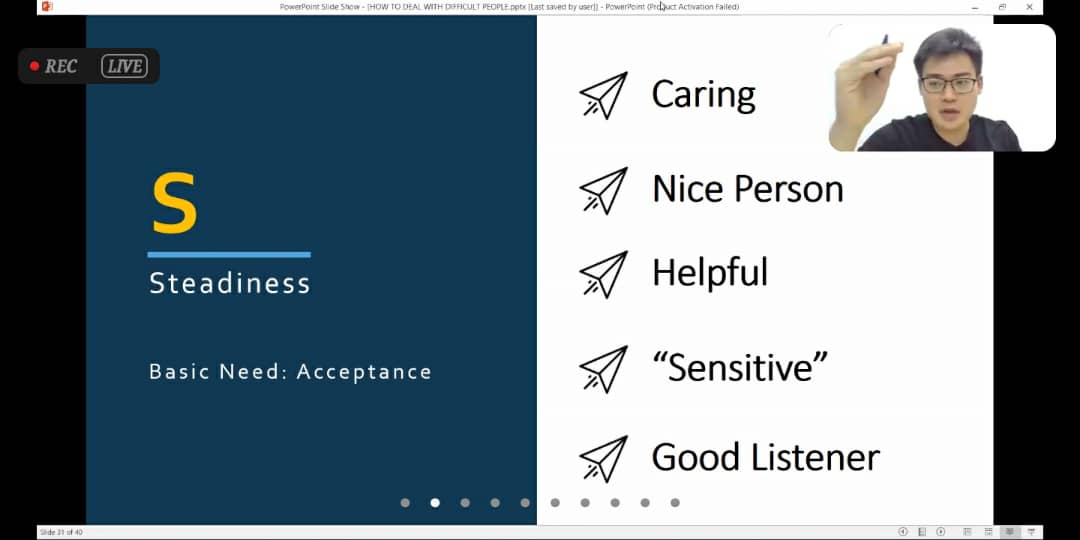
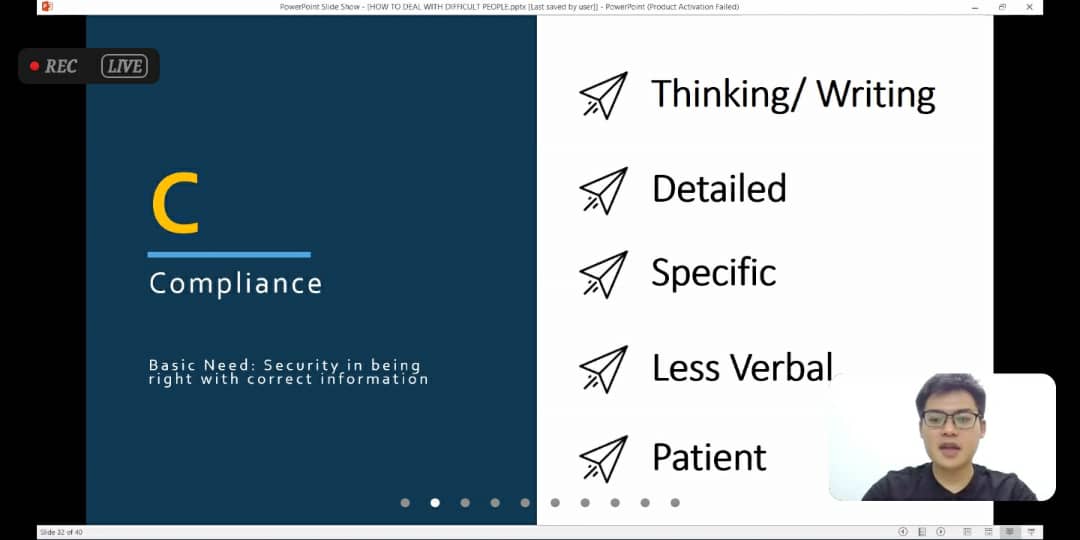
DISC
He said, “There is no good or bad style in ‘DISC’, each can be effective.
By observing the behaviour, we will understand not ‘why’ people
behave this way, but ‘what makes people different’ and ‘how to deal with
these differences effectively’. To
communicate effectively and to deal with these difficult situations, the
DISC profiling tool allows us to understand others, identify their needs and
build trust with them.”
“As a good team leader, we need to understand our teammates, understand
their needs and build trust with them; then only are we able to understand
their strength and weaknesses and arrange them accordingly based on their
strength. They will feel appreciated, be heard and they will try in a way
that we can never imagine,” said Michael Ng.
He advised, “Remember in life, never let anyone force a decision on us, our
life is under our control.”
The workshop then ended with an interactive Q&A session and a group photo
session.

Michael Ng (top row, second from right) and Er (top row, second from left)
with participants
(Courtesy photo from CWW committee members)

Among Us
“Among Us”—another game activity was organised on 1 June 2021. It was
moderated by its committee member Ng Yu Zhen. To join the game session,
participants were required to download the “Among Us” game apps.

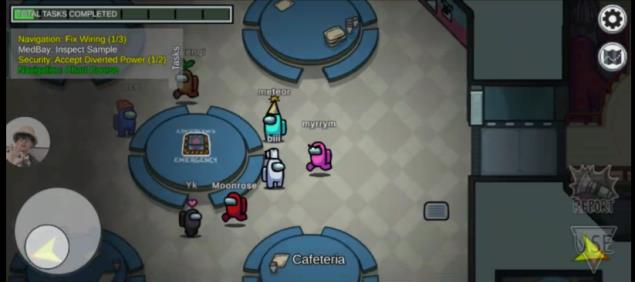
“Among Us” in action
In the game session, participants were required to mute their microphones,
except during the discussion period and players who are “alive” in the game.
Participants were required to cooperate with their game leader and they were
not allowed to send private messages to others.

Ng (top row, most right) and participants

Solving the “Crossword Puzzle”
On 3 June 2021, a “Crossword Puzzle” was organised via Microsoft Teams. It
was moderated by committee member Low Sher Ving.
The first-place winner received RM50 Printcious cash prize, followed by RM30
Printcious cash prize for the second-place winner and RM20 Printcious cash
prize for the third-place winner.

The crossword puzzle

A relaxing moment with “A Journey to Self-Healing”
On 3 June 2021, a talk titled “A Journey to Self-Healing” was organised via
Microsoft Teams. It was moderated by CGU Assistant Manager-cum-Counsellor Ng
Wan Fern. Invited to be the speaker was Registered and Licensed Counsellor
(Freelancer) Lee Ying Yin. She
pursued her Master of Education (Guidance and Counselling) at Universiti
Putra Malaysia. She is registered with the Board of Counsellors, Malaysia
and has a Certificate Course in Counselling using Satir Growth Model (Satir
Whole Person Development Association of Malaysia). She is also a Certified
Consulting Hypnotist at National Guild of Hypnotists (NGH).
Self-healing refers to the mechanism of regeneration. Generally from
psychiatric disturbances or trauma that is inspired and led by the patient
and is often influenced solely by instinct.
“Whether we realise it or not, we are always on the journey of self-healing.
Even if we are severely injured, our blood will not drip for 24 hours. For
ordinary people, we have the healing power to heal our wounds. The wound
here not only refers to physical but psychological as well. Once we realise
that something has happened, our current emotion becomes very intense; we
would feel lost and even have the feeling that the sky is about to fall. But
the feeling at the beginning is always the strongest, until gradually the
intensity will be a little different compared to the beginning,” said Lee.
She continued, “Why do we start to feel different? In fact, the process of
self-healing is a state that occurs naturally. So this is why some people
say that only time can solve all problems. Time is not just about the
period. This is because our life force is functioning and this self-healing
process is always there, but the negative thoughts that are running through
our mind freak us out.” She then shared the miracle of life force and the
Satir’s Self-Mandala.
Satir’s Self-Mandala is an aid for self-soothing by going through self-evaluation. It described the eight resources of a human being, namely Physical, Intellectual, Emotional, Sensual, Interactional, Contextual, Nutritional and Spiritual which need to be fulfilled for us to feel complete. She said, “These eight resources are connected and interdependent. It connects from our “Self” core. Each resource is of equal value. If we are overly dependent on any resources, we will lose balance. Hence, Self-Mandala allows us to learn to make good use of our resources.”


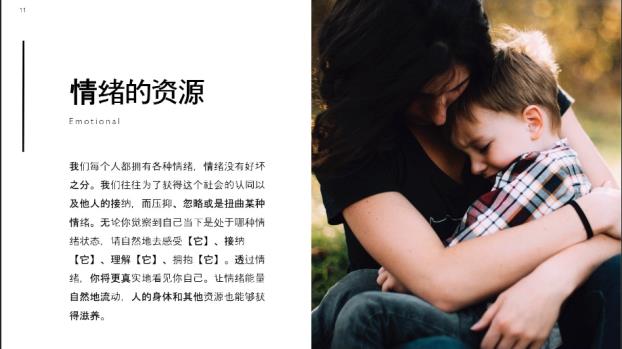
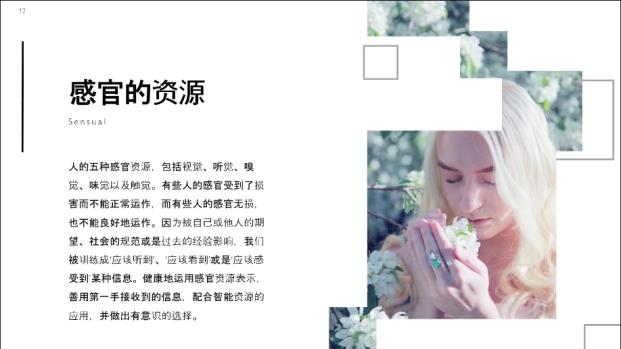
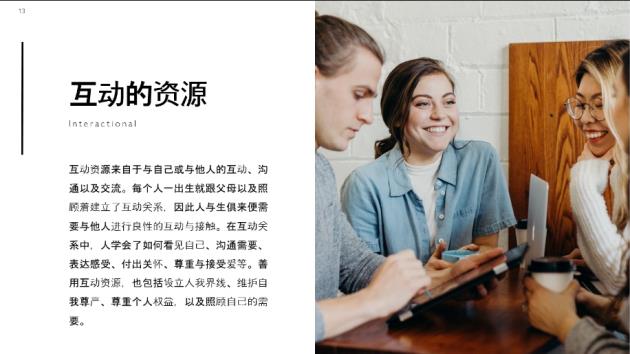
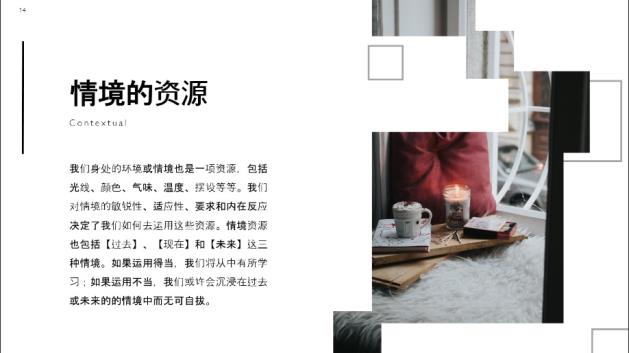
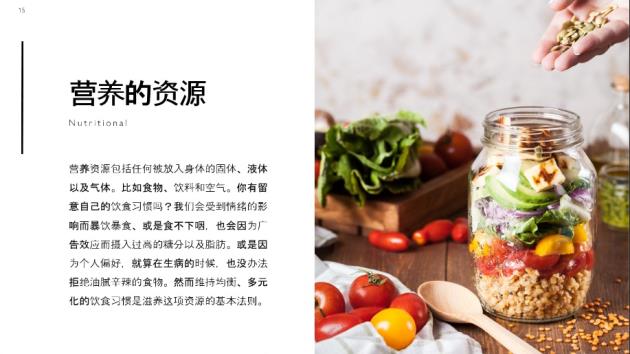
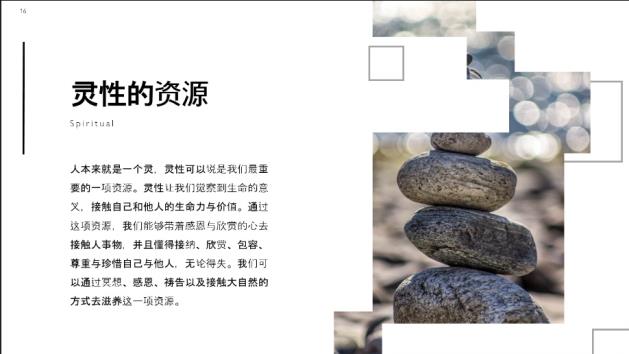
The eight resources in Satir’s Self-Mandala

Lee guiding the participants on how to scan the Self-Mandala
She advised, “In regards to self-healing power, please take good care of
yourself. We deserve to experience a
better life. No matter what we have discovered, or if we have made a new
decision, just do it!”
The talk then ended with an interactive Q&A session and a group photo
session.

Fun filling with “Fruit Carving Workshop”
On 4 June 2021, a “Fruit Carving Workshop” was organised. It was moderated
and taught by committee member Soh Qiau Hui.
Throughout the workshop, the participants were taught to carve two patterns
of oranges, namely Orange Bear and Orange Butterfly. Materials needed for
the workshop were oranges, penknife, scissor, plates, newspaper, chopping
board, toothpick and a dark colour marker pen.
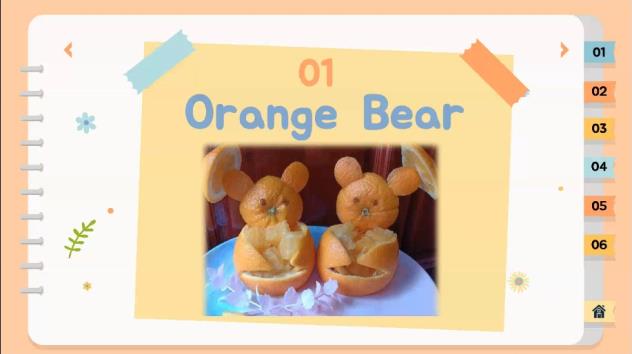
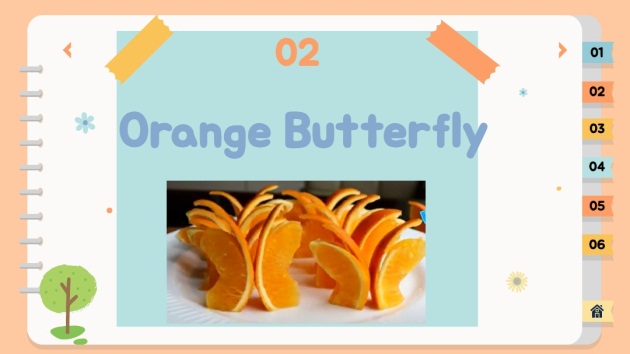
Orange Bear (left) and Orange Butterfly

A fruit carving video demonstration by Soh before the session began

Soh (top row, most left) and participants

Suicide Prevention: Providing a listening ear to the distressed
On 10 June 2021, a talk titled “Suicide Prevention: Providing a Listening
Ear to the Distressed” was organised via Microsoft Teams. It was moderated
by committee member Hanesshwari Sithambaram.
Invited to be the speaker was Befrienders Kuala Lumpur Outreach
Director Dr Kartini Abdul Jabar.
Dr Kartini began her talk by introducing the background and the services
provided by Befrienders Kuala Lumpur such as Emotional Support, Public
Education and Support Group. She then explained the definition of mental
health and said, “According to WHO 2001,
mental health is described as a state
of wellbeing in which the individual realises his or her abilities to
cope with normal stresses of life, work productively and fruitfully, and
make contributions to his or her community.”

Hotline to reach Befrienders Kuala Lumpur (email will be resumed in a few
months)
During the one-and-a-half-hour session, Dr Kartini shared her knowledge on
ways to take care of our mental health and prevent suicide.
“Based on the national survey conducted in 1996, they found that 10.7 per
cent aged above 16 suffered from some forms of mental illness and this
percentage has increased to almost 30 per cent by 2015. It was found that
the mental health problems were high among females, younger adult (aged
16-29), people with low income, singles, widows and divorcees. In 2017, we
did a survey for ages between 13 to 17 years old and it was found that the
state of adolescents’ mental health was quite alarming. One in five
individuals was depressed; two in five individuals were anxious and one in
ten individuals was stressed. They felt that there was an increasing number
of suicidal behaviours which mean either they had suicidal ideation, plan or
attempts between the year 2012 to 2017,” said Dr Kartini. She then further
explained what happens when a person feels suicidal.
While explaining the differences between depression and sadness, she said,
“Sadness is feeling down because of something that happened. While
depression is not sadness, it is not part of ageing, it is not weakness or
laziness or character flaw. It is actually the changes in the body chemical
and that leads to depression. Depression can happen to anyone. It is a
medical condition; it needs and can be treated. Depression can severely
affect the quality of life and can lead to suicide.” She then explained the
symptoms of depression which can affect one’s feelings, behaviour, physical
and thoughts. She said, “It is important to take care of our mental health
which is why the befrienders was introduced.”
She then moved on to share a few short polls conducted by Befrienders Kuala
Lumpur last year during the MCO period. “Mental health is a combination of
our cognitive, emotional and behavioural well-being. How we think, how we
feel and how we behave. It is okay to be not okay if we cannot manage our
mental health during this period, we just have to be aware and acknowledge
what we are going through and accept it.” Meanwhile, she also talked about
the importance of staying connected with our family or friends and having an
established routine in our lives. “Always choose something that would make
you happy, but remember to have the sense of control when you are doing it,”
said Dr Kartini.
On top of that, she also shared some tips on attending online learning and
working from home effectively during this period and the importance of
making good use of social media. “Our body needs rest. If we want to feel
refreshed the next day, we must set our timing every day so that we can
function normally on a daily basis. Make sure we unplug our social media at
night, if not we will not be able to get our rest. Be diligent to restrict
yourself, start now when you are still young. Always make sure that you have
a balanced diet, light exercise and adequate rest to make sure that you can
function,” advised Dr Kartini. She also suggests some ways to sleep better.

Hours of sleep recommended based on age group

Self-care plan for suicide prevention

DASS-21 Screening Test for people who feel depressed, anxious and stressed
She then continued, “DASS-21 is a self-report questionnaire consisting of 21
items, 7 items per subscale: depression, anxiety and stress. Patients are
asked to score every item on a scale of 0 to 3. If they received a high
score which is under the severe category, I would suggest them to seek
professional help,” she explained.
Moving on, she explained suicide prevention. She shared the common issues
received from callers and the total number of contacts received by
Befrienders Kuala Lumpur in 2019 (36,154) and 2020 (40,509), which has
increased by about 12 per cent. She also shared the warning signs of
suicide, the characteristics of an individual who are more likely to
consider, attempt or die by suicide and the protective
factors—characteristics that make a person less likely to engage in suicidal
behaviour. “Suicide prevention starts with recognising the warning signs and
taking them seriously,” said Dr Kartini.
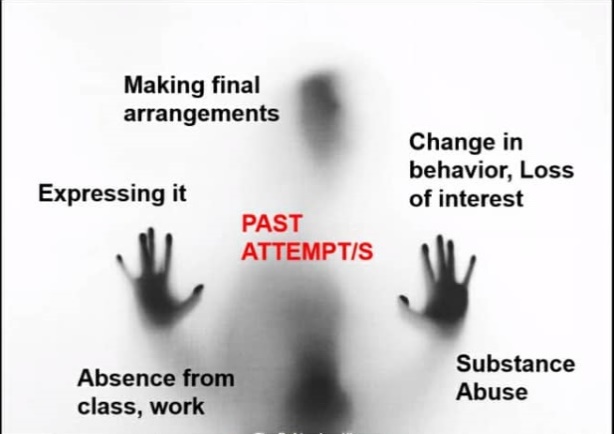

The warning signs

Channels to reach Befrienders Kuala Lumpur
The talks then proceeded with a Q&A session and a group photo session.

Dr Kartini (third row, second from left) and Hanesshwari (third row, most
right) with participants
(Courtesy photo from CWW committee members)

Life Journey Cafe
On 10 June 2021, a group sharing session titled “Life Journey
Cafe”
was organised via Microsoft Teams by Ng Wan Fern.
In this sharing session, participants were encouraged to prepare
their own drink and snack as it was a virtual cafe.
The Life Journey
Cafe
adopted a similar concept as the Death
Cafe
model which was developed by Jon Underwood and Sue Barsky Reid. It aimed to
raise death awareness in order to assist individuals in making the best of
their lives.
She said, “Although many people will avoid talking about this topic (death),
I believe that each of us knows that even if we do not discuss it now, we
will still reach this stage one day. If we do not make a proper financial
plan or set up a will, the most painful thing left after our departure is
our family. They have to help us to arrange our funeral with a heavy heart
right after our departure while having difficulty accepting it. Although, we
would not know when we will come to the end but I would like to encourage
all of you to be positive when we share about this topic.”
She continued, “We once organised a trip to visit Xiao En Centre and we had
the opportunity to see how cremation was performed. We wanted to bring a
message to our students to appreciate and live life meaningfully instead of
complaining every day because our time is limited.”
“We named this group sharing session as Life Journey
Cafe
so that we could have more things to share about life besides death. We all
have a different perception on the meaning and value of life. In this
sharing session, we may also share the kind of funeral ceremony that we wish
to have when it comes,” said Ng Wan Fern.
The one-and-a-half-hour group sharing session saw participants sharing their
first opinion on the pandemic and how it impacted them.
In conclusion, she said, “Remember even if we are still young and yet to
think about it, it is not late as long as we start to think of it now. This
is not something negative, this is to help us to be more positive, to be
more prepared when we come to that stage and learn to be more appreciative
of our lives. This is important and this is also a way to take care of our
loved ones because we don’t know when we will be gone, but at least when the
day comes they will know how to help us to fulfil our wish.”
The sharing session then ended with a group photo session.

Ng Wan Fern (top row, most left) and participants from session 4
(Courtesy photo from CWW committee members)

Creating Art in “Rhythm of Covid-19” session
On top of that, the “Rhythm of Covid-19” was organised from 25 May 2021 to 6
June 2021 via the “Counselling Wellness Week UTAR Sungai Long” Facebook page
and Instagram. It was an activity organised for participants to express
their feelings through any medium of arts. To participate in this activity,
participants were required to take a picture of their creation and create a
public post on their social media with a good caption and hashtag
@Counselling Wellness Week UTAR Sungai Long, @rhythmofcovid19 and
@cww2021_wellness.

Happy “7-Days Skipping Rope Challenge”
Last but not least, an exercise challenge titled “7-Days Skipping Rope
Challenge” was organised from 31 May 2021 to 6 June 2021 via the
“Counselling Wellness Week UTAR Sungai Long” Facebook page and Instagram. To
take part in this challenge, participants were required to record themselves
in sports attire, skipping rope for three minutes and create a public post
on their social media every day during the challenge period and hashtag
#CWW2021, #SkippingRopeChallenge, #healthylifestyle and #believeinyourself.
Besides, they were also required to nominate three friends to join the
challenge. Challengers who took part in this challenge were rewarded with
gifts.
Each talk and activity ended with a lucky draw session. Lucky winners
brought home Nintex Water Bottle, The Mind Faculty Mental Health Assessment,
Printcious RM20 e-Voucher, RM10 GrabFood Gift Card sponsored by Printcious
or RM20 e-Voucher by IOI Bargain Basement. On top of that, the first 500
participants who registered for CWW 2021 received Kanyin Publication’s
Lifetime membership and RM5 e-voucher from Big Pharmacy.
CWW 2021 Chairperson Miriam Ho Ai Ning enthused, “CWW 2021 was designed as a
virtual event due to the pandemic; it was nothing like any other events that
I have organised. It was a new challenge for me. One of the challenges I met
was during the planning stage when I could not meet any of my teammates
personally offline. Hence, I kept questioning myself ‘How do I make this
work?’. Moreover, when we formed the committee, it was amidst the end of the
semester which was close to our finals. But, I am thankful to them for
sacrificing their time to organise this event which had brought joy to many.
Due to time constraints, we did not have time for any bonding activities.
But somehow through the many trials we faced together, we managed to bond
and work with such great synergy which I find refreshing. Some committee
members were even working at the same time! They have my complete respect!”
She added, “With the effort of the team, we managed to get over 1,300
registrations, over 900 attendees and over 400 unique participants at our
event. It was crazy to learn that our reach was massive! This is also my
first time organising something of this scale. My best was just a little
over 500 for an event. The teammates and friends I gained by being a part of
this committee was the highlight for me. I also learned how to manage people
better and a trick or two in becoming more charismatic. This is definitely
an experience that I would not forget for a long time to come.”
One of the participants Ayan Mohamed Yusuf said, “The Counselling and
Wellness Week activities have provided space for people to learn ways to
cope with their mental and physical wellbeing. I took in the ‘Rhythm of
Covid-19’ challenge because I enjoy drawing. The best thing about using art
to express ourselves is perfection is not required. There are no
expectations to draw or paint well and our art is appreciated and accepted
and nobody judges us. As a result of this challenge, I have started to draw
more. I found my skills have improved in the last few weeks (all credits to
YouTube tutorials). The second activity that I really enjoyed was the EQ
Workshop where I learnt a lot about emotional intelligence, ways to deal
with adversity, interpersonal skills, and behavioural traits, to name a few.
The Suicide Prevention talk taught me how to identify suicidal individuals,
ways to help them and how I can personally prevent or overcome if such
thoughts were to ever cross my mind. Admittedly, though not very frequent, I
have had such negative thoughts, but I have started to put to practice the
self-care plan shared in the talk. Needless to say, these two activities
have opened my eyes to learning about myself and how to handle my emotions.
The last one was Life Journey Café whereby we shared our thoughts and
experiences about life, and I have learnt a great deal about the
Malaysia-Chinese culture. As a foreigner, I have very limited knowledge
about the different cultures of Malaysia but in this talk, I certainly
learnt a lot.”
She added, “The fellow members were very friendly, chatty, and they provided
a safe space to express ourselves. I have won twice in the lucky draw
sessions. The first one was an RM20 e-voucher sponsored by Bargain Basement
and I bought a book titled ‘I Can Read You Like A Book’. I hope that I will
learn some tips to help me acclimate back to society after the pandemic
because we might have lost our social skills during this quarantine. The
second voucher was an RM20 e-voucher sponsored by Printcious. I will get a
maybe printed mug with “Twice Lucky Draw Winner” on it, just to spread that
good luck. To sum up, my experience with this year’s CWW activities have
been wonderful. It was excellent all in all and I am excited for more
activities organised for us! Keep them coming!”

A big thank you to the sponsors of CWW 2021!
![]()
![]()
Wholly owned by UTAR Education Foundation (200201010564(578227-M)) LEGAL STATEMENT TERM OF USAGE PRIVACY NOTICE